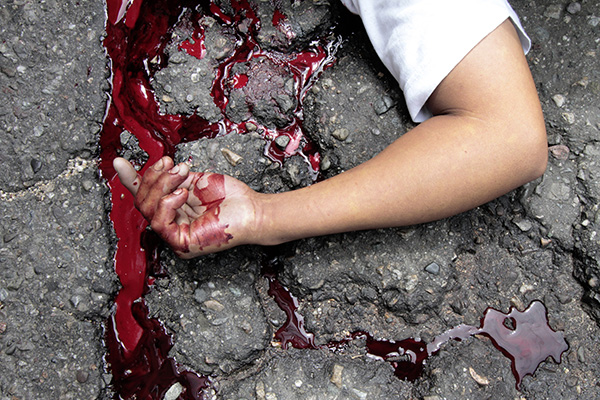
File Photo
Attacker targeted a volleyball game in Paktika province.
About 50 people were killed and 60 others wounded when a suicide blast ripped through crowds at a volleyball game in eastern Afghanistan on Sunday, the deadliest attack in the country since 2011.
The explosion struck during a tournament between three local teams in Paktika province, a volatile region bordering Pakistan, with many children among the dead and injured. The high death toll underlined the challenges facing Ashraf Ghani, the new Afghan president, as U.S.-led NATO troops wind down operations and the national security forces take over responsibility for imposing stability.
“I and my friends were watching the game and we were cheering each time our team scored,” Abdulhay, an 11-year boy being treated for minor injuries in hospital in Sharana, the provincial capital of Paktika, said by telephone. “Then I heard a boom that threw me back unconscious. I opened my eyes in the hospital and don’t know if my friends are dead or alive.”
There was no immediate response from the Taliban, the insurgent group behind many of the attacks across Afghanistan. “The suicide attacker was on a motorcycle, he detonated himself in the middle of a volleyball match,” said Attaullah Fazli, deputy governor of Paktika. “A lot of people including some provincial officials and the police chief were there. About 50 people have been killed, and 60 injured, a lot of them seriously.”
The blast, in Yahya Khail district of Paktika, erupted at about 5:00 p.m. when hundreds of people had gathered to watch a match, said provincial spokesman Mukhlis Afghan. “The scale of the attack and its aftermath is shocking,” he said. “We have asked Kabul to send us helicopters to take some of the critically wounded for treatment.”
President Ashraf Ghani, who came to power in September, swiftly condemned the attack, describing it as “inhumane and un-Islamic.”
“This kind of brutal killing of civilians cannot be justified,” he said in a statement that put the toll at 45 people dead.
One eyewitness, Khushal, 25, said that he saw a man in a traditional shawl get off his motorbike before blowing himself up.
Paktika was also struck by a massive suicide blast in July, when a bomber driving a truck packed with explosives killed at least 41 people at a busy market in Urgun district. A suicide bombing at a mosque in the northern province of Faryab in October 2012 killed 42 people, while another suicide blast at a shrine in Kabul on the Shia holy day of Ashura in December 2011 killed 80.
Sunday’s attack occurred on the same day that the lower house of parliament approved agreements to allow about 12,500 NATO-led troops to stay on next year. U.S.-led NATO combat operations will finish at the end of this year, but the Taliban have launched a series of offensives that have severely tested Afghan soldiers and police.
The new NATO mission—named Resolute Support—will focus on supporting the Afghan forces, in parallel with U.S. counter-terrorism operations. But fears are growing that Afghanistan could tip into a cycle of violence as the U.S. military presence declines, with security forces already suffering huge casualties on the battlefield.
The Army and police suffered 4,634 fatalities in combat to the beginning of November this year, on top of 4,350 killed during 2013, according to the U.S. military.
On Friday The New York Times reported that President Barack Obama had extended the remit of those U.S. troops set to remain in Afghanistan next year. They will be able to carry out missions against the Taliban and other groups that threaten them, the paper said. The new order also allows air support, from U.S. jets, bombers and drones, for Afghan combat missions.
The newspaper said the changes were in part related to the rapid advance of jihadist Islamic State militants in Iraq, which has sparked criticism that Obama pulled troops out without a fully-prepared Iraqi military in place.
Ghani has said bringing peace to Afghanistan is his priority, and that he is open to talks with the Taliban, who ruled Kabul from 1996-2001.
